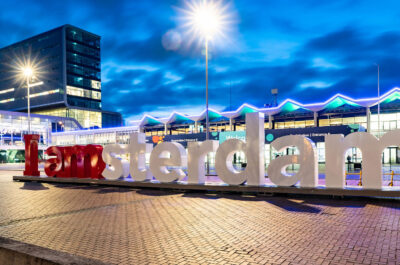The Tours, Activities & Attractions sector (TAA) is experiencing a significant acceleration in its digitalization process. 47% of consumers make travel reservations online and consumers who wait to the last minute have dropped from 38% in 2019 to 14% in 2021.
MADRID – The tours, attractions and activities market (TAA) is developing quickly, with the aim of creating more unique and complete experiences for increasingly more digital-savvy consumers. The COVID-19 pandemic triggered a digital revolution in a sector in which – although some relevant players like hotels and airlines were already on the path toward greater digitalization -specific processes have accelerated.
According to the study “Are You Experienced?” by NTT DATA, the world’s sixth-largest IT company, in collaboration with Globick, this acceleration is mainly due to a change in consumer behavior.
Mobile devices have become the most used devices, indeed sometimes the only one, to interact with tourism companies. The pandemic also considerably influenced this change in behavior. Due to restrictions on capacity, consumers have changed their reservation strategy, from waiting to do everything at the last minute to planning trips more in advance.
According to NTT DATA, the percentage of travelers who wait until the last minute has dropped from 38% in 2019 to 14% in 2021. In fact, 46% buy their tickets a week or more in advance, according to data from Arival. The outcome of this is sky-rocketing use of digital channels to make these reservations, with 47% of consumers buying their tickets online, either on computer or smartphone, compared to 28% in 2019.
Travel companies that want to take advantage of these changes in consumer behavior must make searching, making reservations and real-time confirmation of products at the destination more streamlined and user friendly. This is where OTAs (Online Travel Agency) have a bit of an advantage.
A coherent, integrated and accessible experience
One of the main factors is offering suitable products based on the target market of each tour company, to personalize offers and make customers’ searches easier. Travel companies must also ensure that all third-party TAA products sold on their websites are just as easy to read, browse, understand, and make reservations on, even when contents are provided by third parties.
Recommendations for personalized products vastly exceed generic offers. If a consumer clicks on just one personalized recommendation, the conversion rate increases from 1% to 4%. There are even sophisticated algorithms that make personalized and effective recommendations, which end up reducing search times and increasing sales.
Javier Martí, Partner – Head of Hospitality, Travel & Leisure at NTT DATA Europe & LATAM points out that “"Like in the case of flights and hotels distribution, a new generation of players will bring connectivity and integration into the industry to unlock the potential of the TAA business."
In turn, Xavier Boixeda, CEO of Globick comments that “the in-destination activities sector – the third largest in tourism – must become a central feature in the offers of online and offline travel agencies and can also be made up of accommodation providers and transportation operators. It’s a growing market amid a highly-significant digitalization process, which is at a key time in which those handling it as a central product and not as a travel accessory, can gain great value with high returns.”
Another important factor to bear in mind is to establish a partnership with intermediaries specifically specializing in the TAA market, which can facilitate access to the best market
products under the very best conditions possible. Brands that want to successfully sell TAA products must make sure that the flow of reservations, customer service and the sales approach for these products is aligned with the brand, integrated and coherent.
In short, selling TAA products gives travel brands a wide range of opportunities to ensure customer loyalty, offering them unique experiences before, during and after their trips. The consumer experience must be fully integrated and aligned with the brand and have a tech platform that makes it easy to access the inventory of multiple TAA operators.
Vicky is the co-founder of TravelDailyNews Media Network where she is the Editor-in Chief. She is also responsible for the daily operation and the financial policy. She holds a Bachelor's degree in Tourism Business Administration from the Technical University of Athens and a Master in Business Administration (MBA) from the University of Wales.
She has many years of both academic and industrial experience within the travel industry. She has written/edited numerous articles in various tourism magazines.










































































































































































